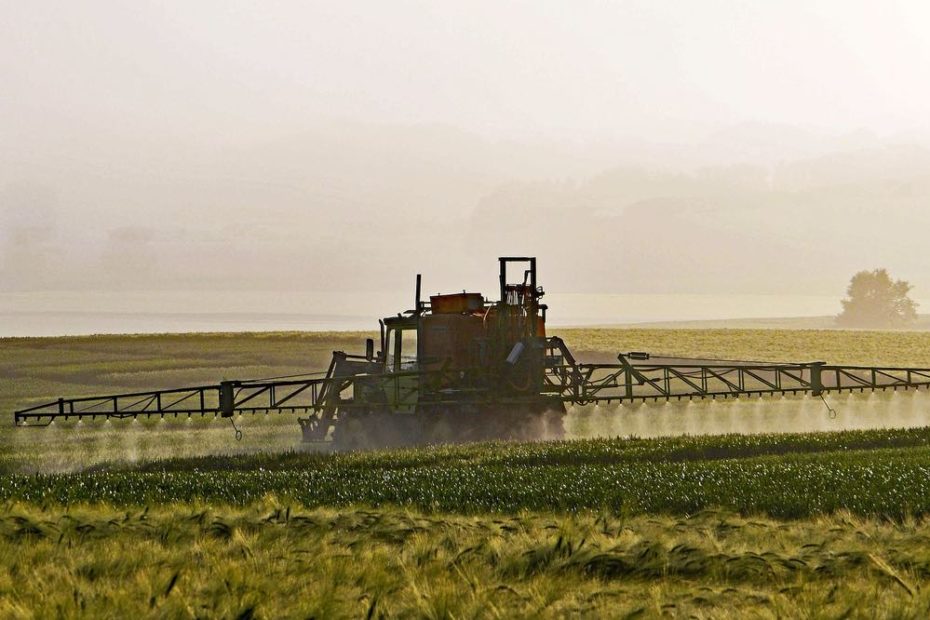Pesticides can help farmers to help protect their crops from pests so unsurprisingly they’re now widely used. Unfortunately, their use leaves traces both on and inside our produce, so each time we eat food grown this way we’re ingesting and exposing ourselves to pesticides. This means that to reduce our exposure to them we not only need to think about how we clean and prepare our food but also to make some different choices about the foods we buy and eat.
But firstly…
What’s the point of avoiding pesticides in food?
It’s tempting to think that if everyone is using these chemicals, they’re probably safe and we don’t need to worry. However, pesticide use causes a lot of problems, both to our health and to the environment. The Soil Association Charity teaches us that using pesticides can damage the soil, impact biodiversity and contaminate water sources. When we eat them, we are also putting our health at risk, both in the short and long term. (1) To find out more about why we should be trying to avoid pesticides check out this explanation of the benefits of reducing our exposure to them.
Now that’s cleared up, let’s take a look at 3 simple steps you could taking to start reducing your pesticide consumption today!
1. Think about buying organic or locally grown produce
Organic produce is grown on farms where they don’t use harmful chemicals like fertilisers, growth regulators and pesticides. This means that any organic products you buy won’t contain residue from chemical use, so they’ll be safer for you to eat.
Fruits and vegetables grown locally and bought from farmers’ markets often contain less pesticides than their equivalents in supermarkets even if they’re not organic, as small-scale farmers are less likely to use as many harmful chemicals on their crops. By buying from farmer’s markets, you’ll not only get the health benefits, you’ll also be protecting the environment by reducing food miles, as well as doing your bit to support your local economy.
This is important to Reset Your Health, as we aren’t just concerned with physical wellbeing, we’re also passionate about making sure that the decisions made about food have as positive an overall impact as possible.
2. Think smart about your fruit and vegetable choices
Not all produce is created equal! Some foods are more contaminated with pesticide residue than others when grown using conventional methods. We call the list of foods most contaminated by pesticides the ‘Dirty Dozen’ and the least contaminated are known as the ‘Clean Fifteen’. You’re safe to buy non-organic foods from the “Clean Fifteen” list” but if you’re trying to avoid eating pesticides “Dirty Dozen” foods need to be organic. An easy option is just to switch up your choices, swapping out the pesticide heavy foods for the cheap and widely available cleaner alternatives.
The Dirty Dozen
Strawberries
Spinach
Nectarines
Apples
Peaches
Pears
Cherries
Grapes
Celery
Tomatoes and lettuce
Sweet bell peppers
Potatoes
Clean Fifteen
Sweetcorn and sweet potatoes
Avocados
Pineapples
Cabbage
Onions
Peas
Papayas
Asparagus
Mangos
Aubergine
Honeydew melon
Kiwi
Cantaloupe melon
Cauliflower
Grapefruit
3. Grow your own
We’re often made to think that growing food is very tricky, requiring a green thumb and lots of knowledge, but in truth there’s no reason why you can’t start growing some of your own produce today. You don’t even need a garden, just a windowsill and a little bit of time and soon you’ll be able tucking into home grown fruit, vegetables and fresh herbs. Growing food yourself is a great way of making sure your food is safe and eco-friendly because you’re in total control of what is going into them. Take a look at the Royal Horticulture Society’s advice on how to get started.
Growing your own food has even more benefits than just reducing pesticide consumption. It not only benefits your physical health, but also your mental health and wellbeing. The mental health charity Mind recommends we spend more time nurturing plants and connecting with nature as a good way of improving our mental state, and growing food is particularly good at giving you a great sense of accomplishment and satisfaction. (2)
What next?
So now that you know how to reduce your exposure to pesticides, it’s over to you to start cooking with and enjoying this healthy and eco-friendly food. If you’re stuck for ideas for dishes that showcase this clean, fresh produce, you might like to sign up for the Reset Your Health Plan. Start enjoying the benefits of organic and pesticide free food with new and exciting recipes, whilst improving your health and protecting the environment.
References
- Alavanja MCR, Hoppin JA, Kamel F. Health Effects of Chronic Pesticide Exposure: Cancer and Neurotoxicity. Annu Rev Public Health. 2004;25(1):155-197. doi:10.1146/annurev.publhealth.25.101802.123020.
- Mind. How nature benefits mental health. Accessed online on 23/06/2020. Available at: https://www.mind.org.uk/information-support/tips-for-everyday-living/nature-and-mental-health/how-nature-benefits-mental-health/
